The Montreal Canadiens’ identity or lack thereof has come up a lot in 2020-21. After dominating opponents at the start of the season, going 5-0-2 straight out of the gates in January, the Habs stumbled under head coach Claude Julien and then his replacement Dominique Ducharme. They eventually backed into a playoff spot to face the Toronto Maple Leafs in the first round, almost in spite of themselves, losing their final five games of the season.
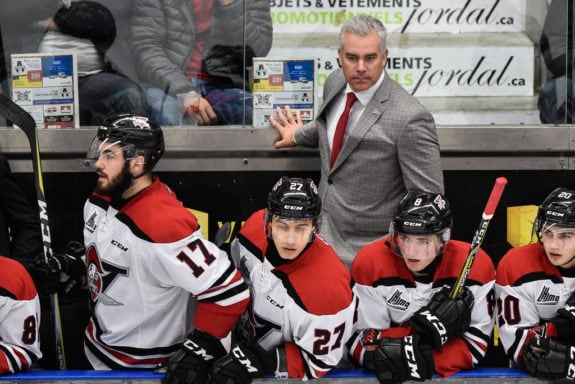
So, who are these Canadiens? The offensively capable force that scored at will to start the season or the one that just barely hung on at the end after being forced to play 25 games in 43 due to NHL COVID-19 protocol? Or the mediocre team that went 9-8-7 in between, transitioning between coaches?
The good news is, if they themselves aren’t exactly sure, they can look to any one of the following examples of Canadiens teams past for inspiration against the Leafs.
5. 1978-79 Montreal Canadiens
Why not look to the last time the Canadiens faced off against the Maple Leafs?
In 1978-79, the Canadiens were en route to their fourth and final Stanley Cup in four seasons, as part of their 1970s dynasty, going on to sweep the Maple Leafs 4-0 in the first round. While the Leafs put up a fight, taking Games 3 and 4 to overtime, by that point the Habs had outscored them 10-3 in the series, almost making the outcome a formality.
That right there unfortunately kind of answers the initial question, as the Habs of today don’t have realistic Stanley Cup aspirations. From an outsider’s perspective, considering their arduous path to simply get to the playoffs, many fans are simply grateful they made it this far.
Nevertheless, with the Canadiens having historically gone 7-6 against the Leafs in the playoffs, there are at least six other Habs teams from which to hypothetically draw inspiration, not counting the four others on this list.
4.1992-93 Montreal Canadiens
Whenever the Canadiens make the playoffs, 1992-93 needs to come up almost as a rule. With the Canadiens’ last Stanley Cup victory approaching its 30th anniversary though, it’s almost due to nostalgia at this point more than a case to be made that this could be the year. Still, people forget the Canadiens were far from favorites that season.
In fact, as the third seed in the Adams Division, they were underdogs against the Quebec Nordiques in Round 1, albeit by just two points in the standings. With the Boston Bruins getting swept in the first round and the Stanley Cup-favorite Pittsburgh Penguins similarly getting upset in Round 2, the Canadiens’ path to the Stanley Cup became much clearer.
There are other similarities between the 1993 Canadiens and the 2021 edition. Their superstar, Patrick Roy, was in nets like Carey Price today, while they arguably lacked one in front of him. Sure, the 1993 team had Vincent Damphousse and Kirk Muller, but they were each safely out of the top 20 in league scoring. Tyler Toffoli ended the season at No. 50.
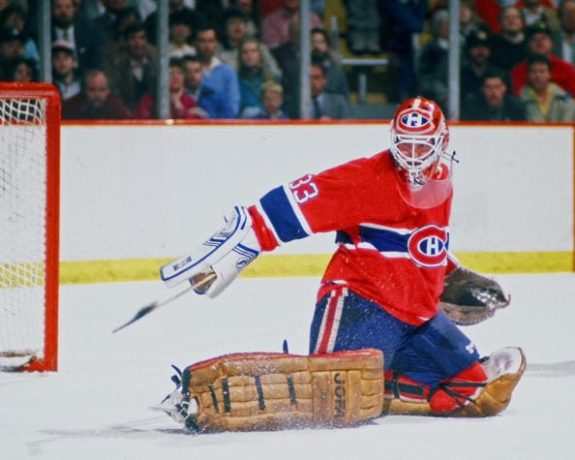
Furthermore, with Stephan Lebeau and Mike Keane posting career seasons to round out the top five in team scoring (Brian Bellows), the team very much enjoyed similar depth on paper as this year’s squad. Just to further illustrate the point, Josh Anderson, who has traditionally filled more of a checking role, finished No. 5 in team scoring this season, albeit with a fairly impressive 17 goals (and not so impressive 24 total points, the same as Max Domi, who had been in the Columbus Blue Jackets’ doghouse for most of the campaign).
Needless to say, the 1992-93 Canadiens weren’t supposed to win the Stanley Cup that year. As strange as it sounds, today’s Canadiens can find some common ground there and build on it.
3. 1983-84 Montreal Canadiens
Like in 2020-21, the 1983-84 Canadiens finished fourth in their division, and took on a top-seeded longtime rival in the first round in interdivisional play. While it was admittedly a best-of-five affair, the Canadiens impressively swept the Boston Bruins before beating the Quebec Nordiques in Round 2, in a series that featured the Good Friday Massacre.
The season represented somewhat of a changing of the guard for the Habs, as it was the last full season for both Guy Lafleur and Steve Shutt as Canadiens. Bob Gainey and Larry Robinson would remain for five more seasons each, but young guns like Mats Naslund, Bobby Smith and Guy Carbonneau were just leaving their respective marks on the franchise. Of note and of particular relevance relative to today, 21-year-old rookie Chris Chelios dressed in all 15 playoff games for the Canadiens. He seemed to turn out all right.
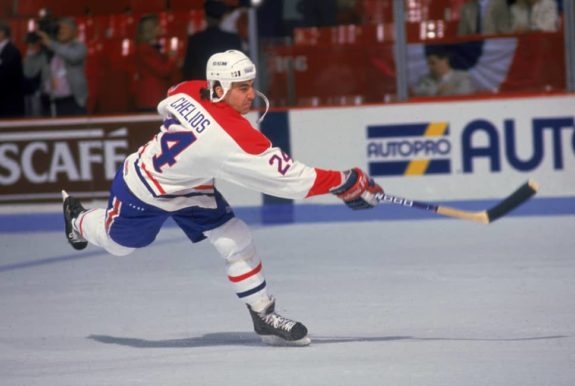
In Round 3 that season, the Canadiens ran into the powerhouse New York Islanders, who were in search of a record fifth straight Stanley Cup. The Islanders would beat the Canadiens in six games, but lost to the upstart Edmonton Oilers in the Final, with the Oilers winning five of the next seven championships, themselves.
So, the Canadiens were far from a team of destiny that season, which is made patently obvious by the following fact: Not only did they finish fourth in the Adams, but they had the lowest point total among Prince of Wales Conference playoff teams, having gone 35-40-5 during the regular season. It was the first time since 1950-51 that the Habs had earned a losing record.
Think about that for a second, and how, as they say, there’s always a chance as long as you get in.
2. 2009-10 Montreal Canadiens
More than usual, the Montreal Canadiens captured the attention and the hearts of fans as eight seeds in 2009-10. Riding the hot hand of goalie Jaroslav Halak, the Canadiens rope-a-doped the Presidents’ Trophy-winning Washington Capitals and the reigning-Stanley Cup-champion Pittsburgh Penguins in the first two rounds of the playoffs. It’s hard to write a better script than that.
Obviously a third-round victory over the Philadelphia Flyers (instead of a 4-1 loss) would have made for a better ending. However, the Flyers themselves, even though they lost to the Chicago Blackhawks in the Final, can similarly serve as inspiration.
While the Flyers officially finished above the Habs in the standings, they had earned the same 88 points as the Habs and came close to missing the playoffs altogether, beating the New York Rangers, who finished with 87 points, in a shootout in the last game of the season to just barely secure the last spot. Sound familiar?
It should, considering the Flyer were forced to go with one goalie, Brian Boucher, down the stretch during the regular season, with another, Michael Leighton, getting injured. Ultimately, Leighton would take over as starter with Boucher getting injured against the Bruins in Round 2, a series the Flyers would win, despite facing a 3-0 deficit.
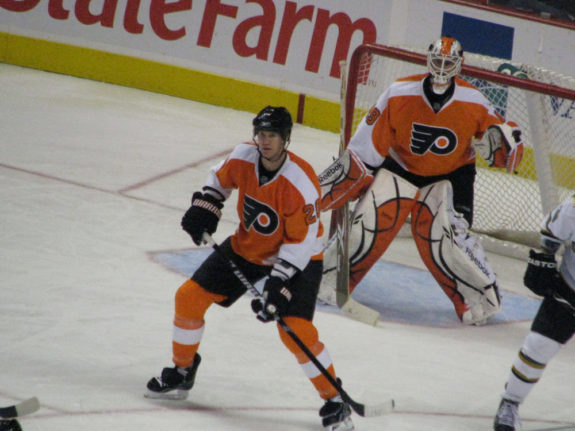
Now, Leighton is no Price, but, with Boucher taking over the reins for Leighton late in the regular season, the Flyers stumbled to the finish line. They went 5-7-2 in their last 14 games of the regular season. That’s the exact same record the Canadiens earned over their last 14 in 2021. Coincidence? Most definitely, but it makes for a good story, nevertheless (at least in theory).
1. 2001-02 Montreal Canadiens
Technically speaking, no one really needs the Canadiens to go all the way this postseason. While it would undeniably be nice, all the Canadiens really need to be able to call this season a success with a straight face is a Round 2 berth. If they don’t, the season can only be considered a failure for several reasons.
Last season, the Canadiens technically won a round, despite having finished the regular season 24th in the standings. There were obviously extenuating circumstances, but the fact is the Canadiens absolutely need to build on last season’s finish, especially with general manager Marc Bergevin’s contract set to expire in 2022. It would mark 10 years on the job and he realistically needs to put the Canadiens in a position to contend by then.
Furthermore, based on the moves Bergevin made last offseason, the Canadiens were supposed to be a whole lot better. It was to be blunt a disappointing season, or at least it has been up to this point. A second-round berth, even if the Canadiens end up losing in Round 2, would wash the stink away and put the Canadiens in perfect position to do more damage in 2021-22. Plus, there’s always the fact that they’d be beating the Leafs in the process.
In 2001-02, the Canadiens were similar underdogs, going up against the Eastern Conference-champion Bruins in Round 1. While that alone would make for a classic David and Goliath retelling, consider how the Canadiens had missed the playoffs in each of the prior three seasons. In the present, due in large part to a condensed schedule and injuries upon injuries, the Habs came oh, so close to missing the playoffs for a fourth time in six seasons.
Granted, none of the injuries were on the same scale as then-captain Saku Koivu’s battle with cancer that season. There is nevertheless a clear need for these Canadiens to rally around something, even if it’s to a lesser degree, to beat an undeniably elite team in the Leafs in Round 1. Back in 2002, the Canadiens never trailed in their series against the Bruins, beating the top seeds in six games, in what was coincidentally current-Maple Leaf Joe Thornton’s first taste of playoff action against the Canadiens.
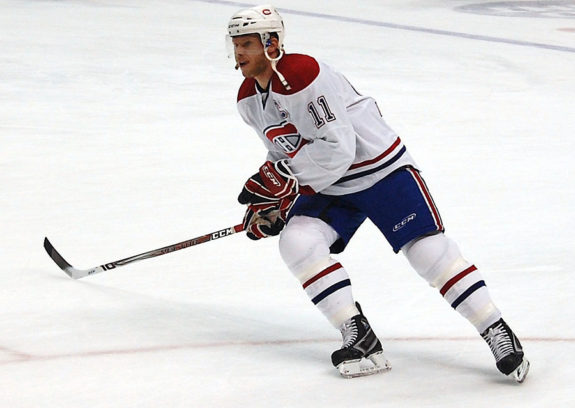
The Canadiens went on to face the Carolina Hurricanes in Round 2, when they imploded in Game 4, leading 2-1 in the series. On the verge of taking a commanding 3-1 series, the Canadiens gave up a 3-0 lead in the third period and lost 4-3 in overtime along with the last two games of the series by a combined score of 13-3.
As far as playoff collapses go, it’s definitely right up there, along with another infamous blown three-goal lead, this time in Maple Leafs’ history. Needless to say, when the two teams finally face each other in Game 1, they’ll undeniably have a lot of history on which to look back and their own individual sets of demons to exorcise. For the Maple Leafs, who should be considered contenders, they can’t afford to take the Habs lightly and lose after years of disappointment. Meanwhile, the Canadiens simply can’t afford to lose themselves doing too much soul-searching. Hopefully, they find their game in time.